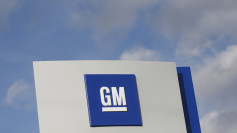In a significant development for the American auto industry, members of the United Auto Workers (UAW) have overwhelmingly ratified new contracts with the Detroit Three automakers. The agreements, which span four-and-a-half years, were confirmed by the UAW on Monday, marking a pivotal moment for the 146,000 members it represents.
The new contracts include substantial wage increases and investment commitments, reflecting the union's successful negotiation strategy. Hourly workers at Ford, Stellantis, and General Motors Co. passed the agreements with majority votes of 69%, 70%, and 55%, respectively, averaging out to a 64% approval rate across all three companies. UAW President Shawn Fain hailed the ratification as a turning point, saying, "The Stand Up Strike was just the beginning. The UAW is back to setting the standard."
The agreements avert the potential for another strike and bring significant gains for UAW members, including a 27% general wage increase over the contract's life, expiring on April 30, 2028. The deal also restores benefits lost during the Great Recession, such as cost-of-living adjustments, and secures pathways for organizing battery plants under the master agreements.
Following the ratification, immediate wage increases of 11% will be implemented. Notably, the agreement accelerates the timeline to reach top pay from eight years to three and converts temporary and supplemental workers to full-time after nine months on the job, with their pay increasing to $21 per hour. Lower-paid workers at parts distribution centers and other component plants are also being brought up to production wages.
These groundbreaking contracts include substantial investment commitments from the automakers. Stellantis' deal, for instance, features $19 billion in U.S. investments, including plans for a midsize truck at the idled Belvidere Assembly Plant in Illinois and a new battery plant. Ford commits to investing $8.1 billion in its UAW-represented plants, with GM announcing $1.94 billion in previously undisclosed investments.
Ford CEO Jim Farley, acknowledging the additional costs per vehicle due to the new labor agreement, emphasized the need for efficiency and competitiveness. "It's imperative that we continue to attack cost and waste throughout our operations," Farley stated, underscoring the importance of productivity as the company prepares for major product launches.
Similarly, GM CEO Mary Barra expressed satisfaction with the agreement, emphasizing its role in ensuring good jobs across the U.S. and the company's focus on meeting production and EV transition goals. Mark Stewart, Stellantis' chief operating officer in North America, also welcomed the conclusion of negotiations, highlighting the company's commitment to its Dare Forward 2030 strategic plan and the launch of eight new electric vehicles in the U.S. market in 2024.
The UAW's successful negotiation of these contracts represents a significant shift in the auto industry, as workers secure better wages and conditions amidst the ongoing transition to electric vehicles. These agreements set a new precedent for labor relations in the sector, demonstrating the union's enduring influence and the importance of collaboration between labor and management in navigating the industry's future challenges.





